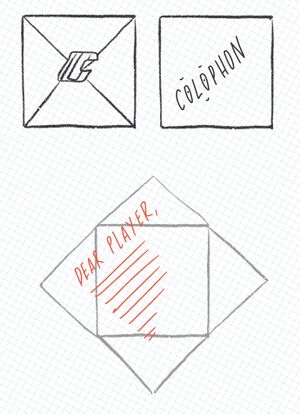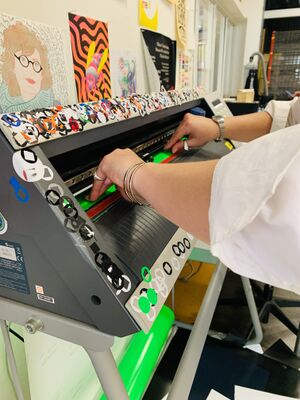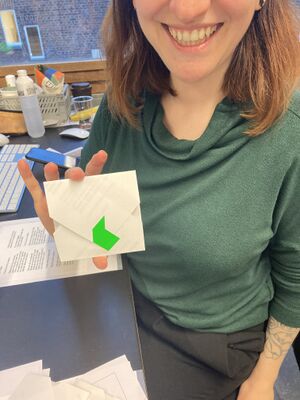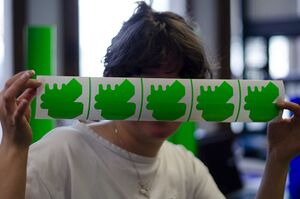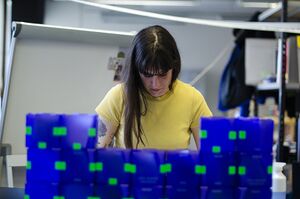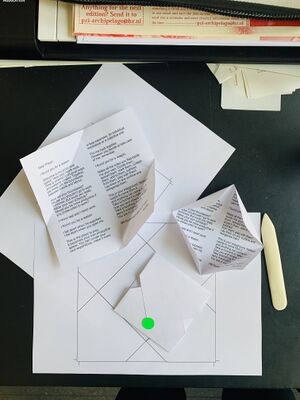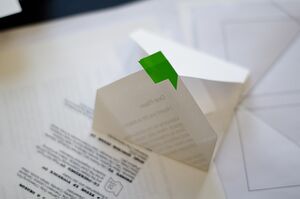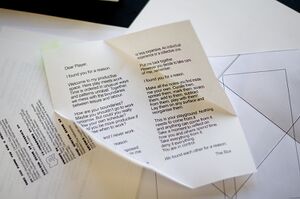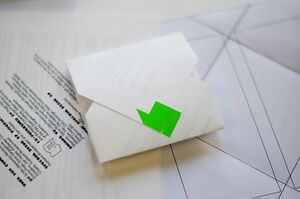Special Issue 17 Editorial
In a nutshell
The Editors team for this special issue were Alex and Gersande. In order to help the small groups (teams 1, 2 and 3) connect their ideas in a joint concept as well as exchange feedback and make editorial decisions, Alex and Gersande facilitated a process with several steps. In a nutshell, we started with listening to all of the teams' ideas, summarised them and looked for the common ground. After that, we facilitated a meeting with the group representatives. Once we agreed on a joint narrative and angle, the groups had their time to re-assess their concepts and align them with the overall Special Issue's needs. The editors also worked on the texts, parts of the publication by writing, editing, copy-editing and proofing. They also created the introduction (letter) and the colophon for the Special Issue.
Context
During the first half of the trimester, we focused mainly on reading and theorising the publication. This time we really had the time to read and digest, which made the special issue much better theorised than the previous one. However, when we had to make editorial decisions, it was after two weeks break (study week and Spring vacation) and even though we had meetings during this period, we still got stuck on the step to decide what the publication would look like (the medium, the context etc.).
In order to untangle ourselves, we divided into three teams: team 1 for the content of the loot box; team 2 for the box creation; and team 3 for the launch event. Each team was allowed to make the decision regarding their subject. However, we were worried that by following such a process, we might end up having three different projects. Thus, Alex decided to take the role of an editor, who will not be in any of the groups and can help them by giving the perspective of the outsider; and to facilitate a conversation between the teams on the common ground: setting, narrative and method.
[step 1: harvest each group's concept] on 08/03/2022 Alex joined all the team meetings with Lidia to take notes.
[step 2: get summaries and outline the common elements] After that, she made summaries of what they said and highlighted the most pressing questions that were asked during the meetings. The outlines were a base for the meeting with the team representatives on the next day.
[step 3: facilitate an editorial meeting] during the meeting, Alex presented the outlines and shared what were the common elements she saw from the different presentations in terms of special issue concepts. After that, each team answered to some questions and everyone agreed on the common setting, narrative and method for the whole publication and its three parts. Thus, the team representatives could talk to their groups and get rid of some elements that were extra. Or as Lidia said, "killed some darlings". :-)
[step 4: unify and write the introduction] once we all agreed on the common concept, Alex and Gersande continued with writing the introduction to the publication and colophon.
[as a result] of this process, teams 1 and 2 got rid of some elements from their concepts and looked at their ideas from a common perspective: the setting of a productive environment made up by us; using the methodology of gamification (gamifying the experiences) and making the visitor/reader a Player.
Introduction letter
[step 1: form and structure] Alex and Gersande agreed on some structural elements on the letter: to be in the form of a letter that addresses the reader as a Player. This decision was inspired by the "letter to ourselves" Gersande wrote earlier. We also wanted to address our readers directly, gently and speak to them from the perspective of the box. Since part of the overall concept was to make the box a precious object, giving it a soul was also part of that intent. The structure was to be: a paragraph about the context (productive play and productive environment), another one about the box and one about the content (that gives some hints what to do with it). We also made a prototype how what it would look like.
[step 2: first draft] Having all of this in mind, Gersande wrote the first draft.
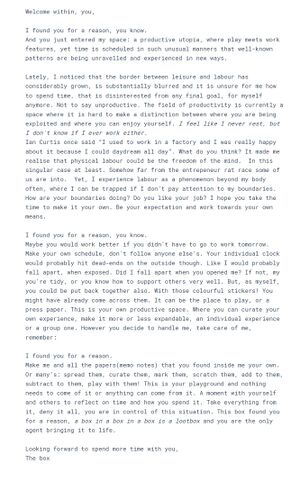
[step 3: comments by Lidia, Carmen & Mitsa] On the next day, we invited Lidia to have a look and leave comments. Carmen and Mitsa also added some ideas and suggestions for edits.
[step 4: editing by Steve and Alex] Alex and Steve spent the next day doing line by line editing and two additional versions of the letters were created after it.
The version Steve and Alex created together:
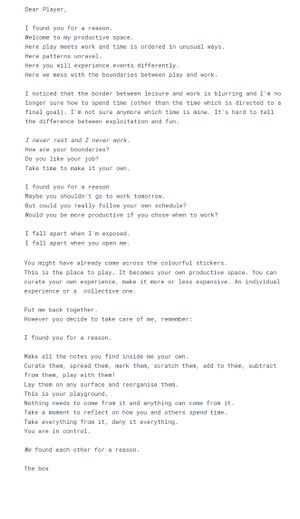
The version Steve created afterwards:
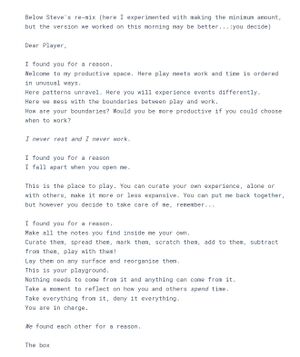
[step 5: final copy edits by Alex & proofing by Gersande] after all the edits we did with Steve and Lidia during the day, we finalised the letter to this version:
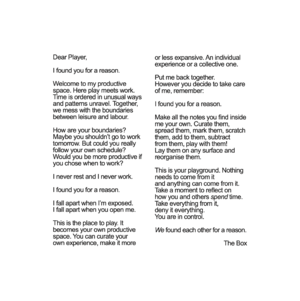
[step 6: graphic design of the letter & paper by Gersande] paper came straight outta Amsterdam. On the one side of the paper there is the paper and on the other one: the colophon.
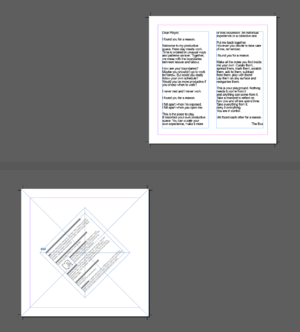
[step 7: printing, folding & sticking] the perfect production line. In XPUB studio environment. And Alex became a folding machine with 99 letters to fold (396 folds). And Gersande spending the day at the plotter to make the stickers for the letters and for the box.
Padliography
https://hub.xpub.nl/soupboat/pad/p/Letter_to_ourselves - letter to ourselves by G
https://pad.xpub.nl/p/xpub1-editorial-draft - the editorial organisation pad by Al
https://pad.xpub.nl/p/xpub1-si17-editorial-groups-outlines - teams' summaries by Al & editorial meeting outcome
https://pad.xpub.nl/p/Intro_SI17 - editing masterclass with Steve
https://pad.xpub.nl/p/si17-editorial-texts - final texts

